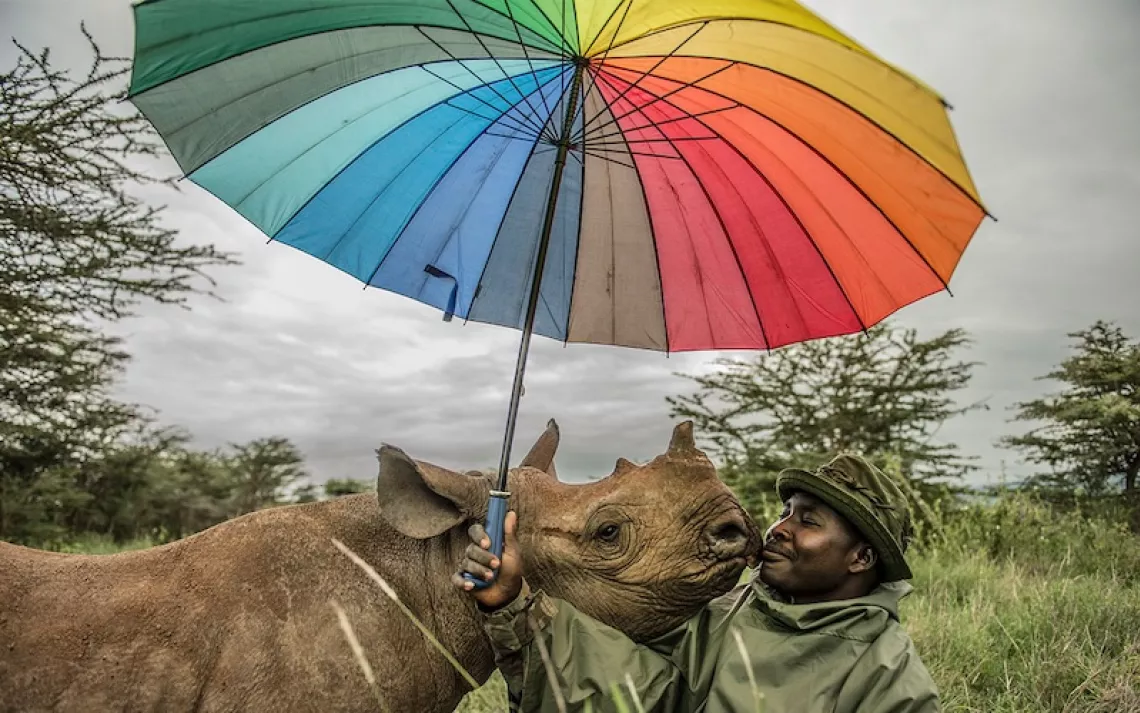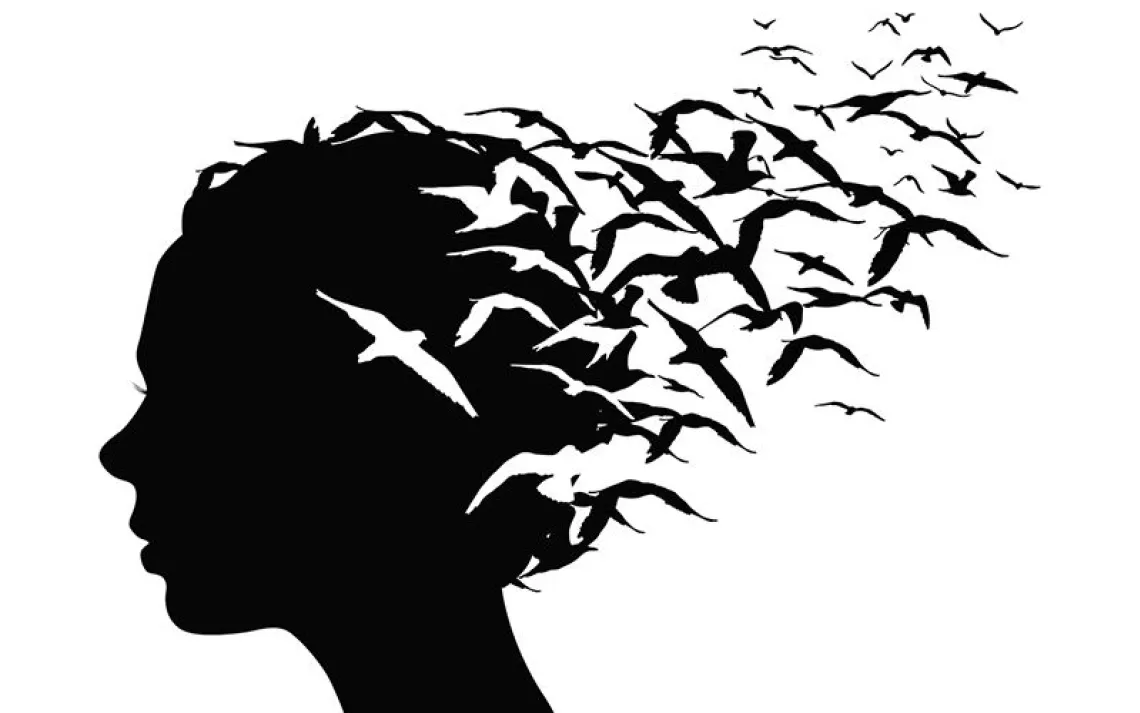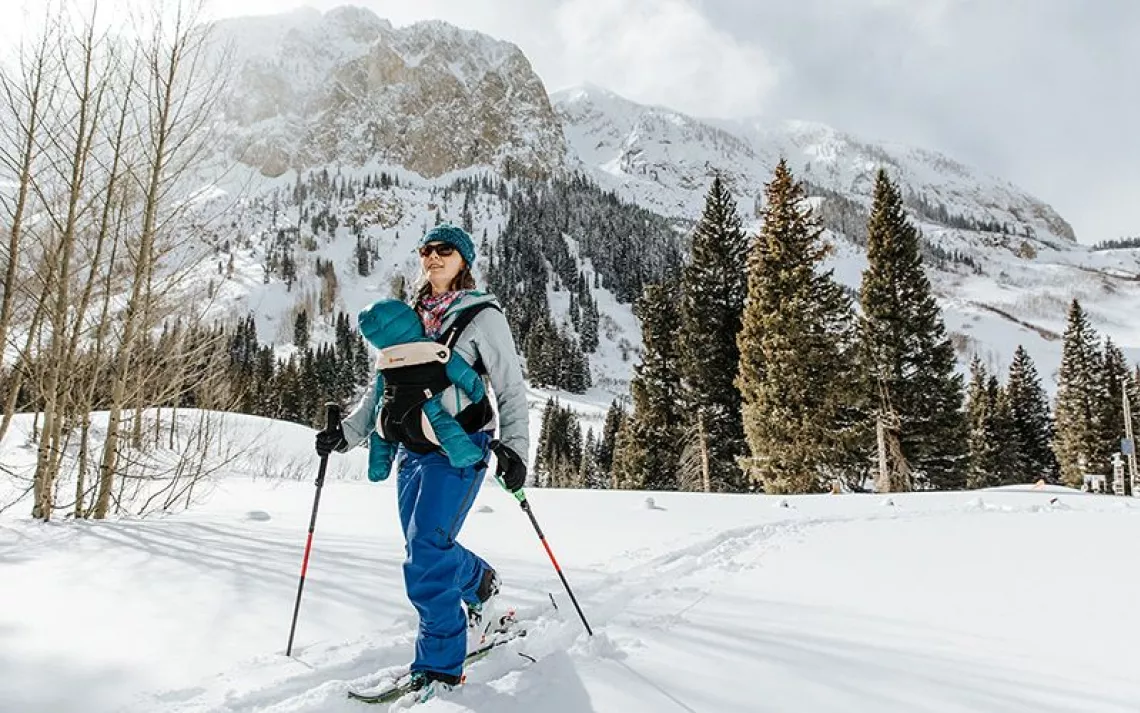Don't Let Them See You Cry
A paleontology writer’s experience of gendering—and misgendering—in the backcountry
Don’t let them hear you cry. I repeated the phrase a few more times as I buried my face into the crook of my arm. Not a day had gone by when I had not been misgendered by one, and usually several, of the men who led the field expedition into the fossiliferous depths of the park. They were my guides, my colleagues, and my lifeline in this remote place of tundra-covered crags, but no amount of correction—chirpy at first and more serious as the week wore on—seemed to make any difference. I’d be out in the backcountry of Denali National Park for a few more days yet. What could I do but take it?
It wouldn’t be until we walked out of the wilderness and I got to sleep in a bed again that I realized that the tears shed on my sleeping bag weren’t just a matter of compounded misgendering. I’d felt bloated and tired, almost hungover despite the fact that it had been days since whiskey had touched my lips. I wasn’t just upset, I realized, but I’d been having my first period in a place where half the expedition didn’t even see me as a woman.
I’m something of a rarity in paleontology. Not only am I a transgender woman in a field so dominated by cisgender men that you’d be forgiven for thinking that the science’s demographics have stagnated for a century, but also my career as a science writer has given me the flexibility to join multiple field crews over more than a decade. But as I zipped between field camps in Alaska, Wyoming, and Utah this past summer as my true self, as the woman I had always hoped I could be, the camps I loved so much felt dramatically different—even forbidding. The harsh sunlight, biting insects, and treacherous rock slopes were the same as ever, almost comforting in their familiarity. It was the people that had me asking myself how much longer I could remain among the rainbow-colored rocks I had come to love.
I was misgendered almost daily in every field camp I visited. I had students talk behind my back—not so quietly as they might have thought—that I must be another lazy woman because I went off to search for fossils instead of chipping away in a quarry with the men. When a project leader started telling an embarrassing story about me in the middle of camp and I asked him to please stop, he continued as I sat right next to him. Even in my favorite camp of all, where women were in the majority, I was misgendered daily by one of the men in camp—especially when I did anything like lift a heavy object or seemed stereotypically unladylike. I was seen as feminine enough to be less competent or driven, but masculine enough to have colleagues seemingly forget—for the 20th time—that my pronouns are she/her and not he/him. I often struck out on my own to search for fossils. At least the pronghorn that sometimes ambled by were silent and incapable, so far as science can tell, of transphobia.
 I wish I could say I was shocked at how different my time in those deserts felt. The truth is that I knew to expect it. Even before I came out, masculinity often set the tone for any time I spent among field crews. Young men would talk about their sexual conquests but slut-shame women who acted much the same as the boys. Peer pressure to drink can be as stereotypically over-the-top as an after-school special, sometimes paired with the in-the-field affairs of men who expect their secrets to be left behind on the rock. How ridiculous it is that some women like to wear makeup in the field is a common point of conversation, while nothing is said about men who don’t change their clothes for a week and regularly nurse hangovers of varying intensities. Even in more laid-back camps, men are traditionally treated as leaders, cooks, mechanics—the authorities on just about everything. The only thing that seemed to shift the scales was being in a majority-femme camp where the men seemed to fall into stolid silence while we talked and laughed about periods, pregnancy, and the sorts of feminine discourse often deemed impolite in mixed company.
I wish I could say I was shocked at how different my time in those deserts felt. The truth is that I knew to expect it. Even before I came out, masculinity often set the tone for any time I spent among field crews. Young men would talk about their sexual conquests but slut-shame women who acted much the same as the boys. Peer pressure to drink can be as stereotypically over-the-top as an after-school special, sometimes paired with the in-the-field affairs of men who expect their secrets to be left behind on the rock. How ridiculous it is that some women like to wear makeup in the field is a common point of conversation, while nothing is said about men who don’t change their clothes for a week and regularly nurse hangovers of varying intensities. Even in more laid-back camps, men are traditionally treated as leaders, cooks, mechanics—the authorities on just about everything. The only thing that seemed to shift the scales was being in a majority-femme camp where the men seemed to fall into stolid silence while we talked and laughed about periods, pregnancy, and the sorts of feminine discourse often deemed impolite in mixed company.
It’s no mystery where this imbalance comes from. Our visions of the outdoors cultivate the image—from making Walden required reading to Patagonia ads featuring grizzled men in sweat-wicking fibers. Men, it would seem, venture into the wilderness to extract something—a victory, a story, a sense of mastery of themselves or nature. Women, by turns, are urged to either “keep up with the boys” to prove their worth or engage with nature more sensitively—that hiking the Pacific Crest Trail is another iteration of Eat Pray Love or otherwise turning the outdoors inwards to exercise trauma. And even when this is definitively not the case, women face dangers that men never do—namely, men themselves. Bullying, harassment, stalking, and worse are hazards that men bring into the backcountry and that they are oblivious to. Just this past year, two women were slain in Moab, Utah, after reporting that a “creeper dude” had already made them move camp. Men have been taught to feel a sense of ownership and mastery over “the wild,” as if they belong there, but to feel women are fey creatures ill-suited for the rigors of the outdoors. Women who are deemed masculine or sufficiently competent become “one of the boys” while those deemed femme are treated as if they shouldn’t have even bothered lacing up their boots.
A month after I clenched my jaw and dropped bitter tears on my sleeping bag in Denali, I woke before dawn in the painted desert of eastern Utah. In this camp, led and primarily occupied by women, everyone had agreed it was best to wake up early to hit the rocks before the July sun turned us to ash. Everyone looked out for one another, down to a cooler shoved in the back of the pickup filled with cold drinks. “If you need to take a break, hit the shade and drink something cold,” I was told—the tone was opposite of what I’d heard in I-don’t-even-know-how-many camps where male paleontologists who believed you didn’t work hard enough through ridiculous midday heat had made their displeasure known. Of course finding fossils was important, but so was making sure everyone had enough to eat, was feeling well, and was not getting themselves into danger. This wasn’t a camp overseen by an alpha male demanding results, but a team in which everyone looked out for and cared for one another. The backcountry, I had learned, is vast enough that people begin to fill it with their personalities, and I’ll be grateful if I never again find toxic masculinity among the sunbeaten stone.
 The Magazine of The Sierra Club
The Magazine of The Sierra Club




